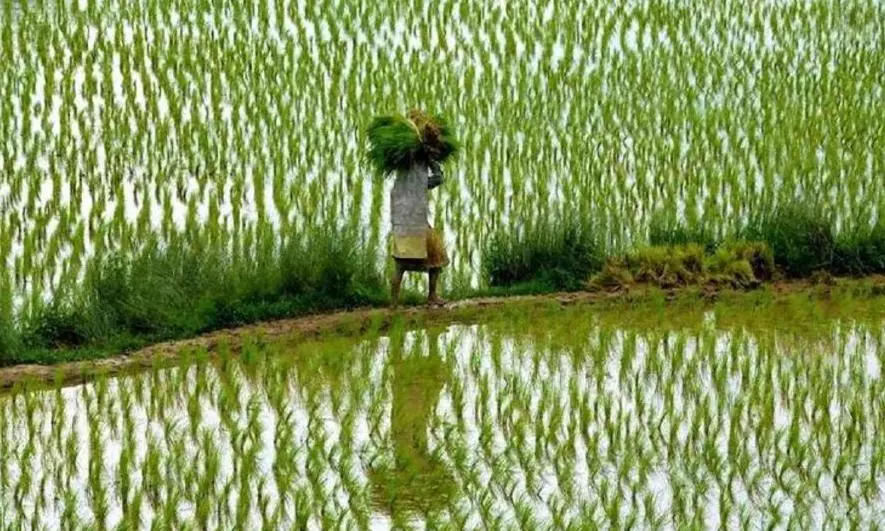
Centre's groundwater tax plan sparks outrage among TN farmers
The plan aims to curb groundwater wastage by taxing farmers based on their water consumption; TN farmers call it 'cruel betrayal' amid existing water scarcity

The Union government’s proposal to impose a tax on groundwater usage for agriculture has ignited fierce opposition in Tamil Nadu, with farmers’ groups condemning the move as a “cruel betrayal” of the state’s agricultural community.
The plan, which includes launching 22 pilot projects across states in collaboration with state governments, aims to curb groundwater wastage by taxing farmers based on their water consumption.
Union Minister for Jal Shakti, C R Patil, announced, “We are finalising pilot projects to provide adequate water at centralized locations with sufficient pressure, allowing farmers to utilise it as per their needs. Users will be taxed based on the quantity of water consumed.”
Anti-farmer policies
The initiative, intended to promote sustainable water use, has instead drawn sharp criticism from Tamil Nadu (TN)’s farming community, already reliant on groundwater due to inconsistent water releases from Karnataka’s Cauvery River.
KV Elangeeran, president of the Cauvery Delta Farmers’ Federation, slammed the proposal in an interview with The Federal.
Also read: TN's mango farmers in crisis as Iran-Israel conflict hit exports
He said, “Karnataka fails to release our due share of water, leaving us dependent on groundwater in the Cauvery Delta. Over the past four years, the Tamil Nadu government has provided 1.5 lakh new electricity connections, increasing the irrigated area by 3 lakh hectares. Imposing a tax on irrigation water now is condemnable. Farmers will have to pay for both electricity and water, which is a ruthless move to hand over agriculture to corporate interests. We will not allow this law to be implemented.”
PR Pandian, a prominent farmers’ association leader, condemned the move as a direct attack on the state’s agricultural backbone. The plan, aimed at addressing depleting groundwater levels, has ignited fierce debate due to its potential to burden farmers already grappling with water scarcity and financial strain.
Pandian, addressing the media, accused the BJP-led central government of adopting anti-farmer policies. He said, “The Centre is taking a strong stand against farmers, but the Tamil Nadu government has full rights over waterbodies in the state. Chief Minister MK Stalin must clarify his stance on this issue.”
He warned of massive protests, likening them to the scale of the independence movement, if the proposal moves forward.
Also read: Watch | Height of frustration! Tamil Nadu farmers climb tower to demand water
Long-standing water woes
The proposal comes against the backdrop of TN’s long-standing water woes.
The 2016–2017 drought, one of the worst in 140 years, left farmers reeling from crop failures, leading to the 2017 farmers’ protest in New Delhi, where they demanded loan waivers and robust drought relief. With groundwater being a lifeline for irrigation in the state, the tax has raised concerns about further straining smallholder farmers, who are already under significant economic pressure.
Experts argue that a groundwater tax could, in theory, promote sustainable aquifer use, as studies highlight the dangers of over-extraction. However, they caution that without adequate support mechanisms, such a policy risks exacerbating the financial distress of farmers in drought-prone regions like TN.
No adequate support
The controversy comes amid TN’s ongoing water challenges, with farmers in the Cauvery Delta heavily reliant on groundwater to sustain their crops.
Critics argued that while the tax aims to address aquifer depletion, it risks pushing smallholder farmers into deeper financial distress without adequate support measures.

